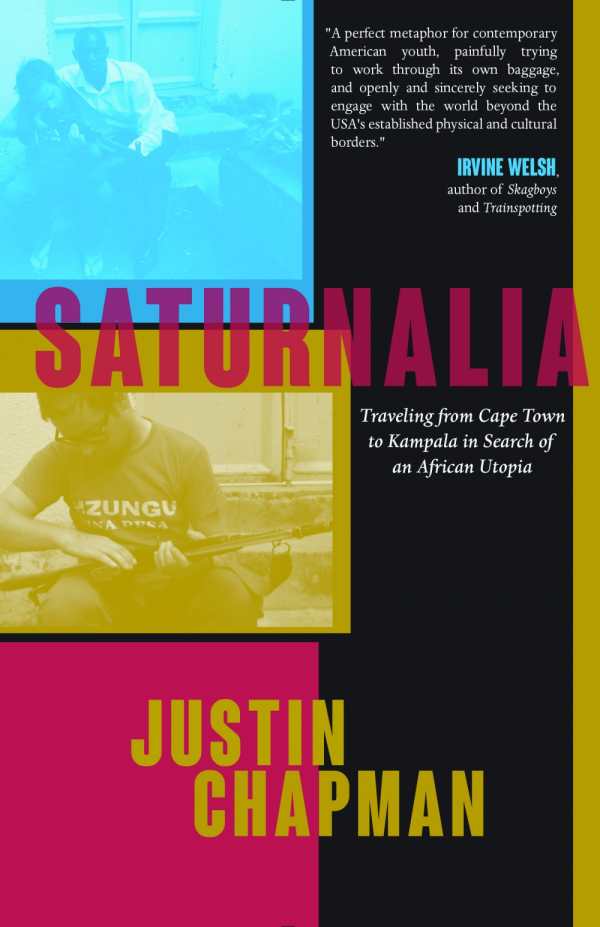Saturnalia
Traveling from Cape Town to Kampala in Search of an African Utopia
Intertwined narratives tell of adventures in Africa while also detailing internal struggles with drug use.
Justin Chapman’s travel memoir Saturnalia tells two intertwined stories. One is the travelogue of a young American writer venturing alone through several southern African nations; the other is a memoir of a drug addict starting to relapse while abroad. The former is the stronger of the two plot lines, but both are told in conversational prose that generally works at conveying the ups and downs of the author’s untethered existence while in Africa.
Starting in Cape Town, Chapman journeys through other parts of South Africa before he visits Botswana, Zimbabwe, Zambia, and Rwanda, and stays for an extended period in Uganda. He relates experiences that will be familiar to backpackers, from the way those sharing a hostel become important friends for just a few days to how something as minor as needing to buy camera batteries can become a complex ordeal. But he also memorably tells of dealing with corrupt police who demand bribes, interacting with annoying fellow expats, and surviving genuine danger in unfamiliar environs.
One notable anecdote involves the author covering a village’s traditional investigation into charges of using witchcraft, journalistically detailing the procedure while skeptically criticizing the superstitions behind it. Another describes having a train-trip discussion about depression interrupted by a spectacular view of giraffes feeding. Chapman sometimes comes off poorly in his own narrative, seeming snarky or even petulant, but this provides a different take on a travel-narrative protagonist, and hints at a self-destructive side that gradually dominates the book.
The drug-addict storyline is always present, as Chapman speaks frankly about the Africa trip being partly a way to quit heroin. He never goes long without popping Xanax or getting high with other travelers. Because relapse seems inevitable, this aspect of the book isn’t quite as compelling as the rest. Still, Chapman is aware of the travel experiences he passes up by allotting time and resources to the quest for a fix, which adds a layer of melancholy on top of the more obvious effects of his drug habit.
Overall, Saturnalia does a nice job capturing the angst of a young writer trying to experience a different life while struggling to avoid the pull of his old one. Whether emotionally affected by a Rwandan genocide memorial or physically impacted by a sudden car crash in Zimbabwe, Chapman comes away from his African journey with some interesting stories, and he shares them in an open and often engaging manner.
Reviewed by
Jeff Fleischer
Disclosure: This article is not an endorsement, but a review. The publisher of this book provided free copies of the book and paid a small fee to have their book reviewed by a professional reviewer. Foreword Reviews and Clarion Reviews make no guarantee that the publisher will receive a positive review. Foreword Magazine, Inc. is disclosing this in accordance with the Federal Trade Commission’s 16 CFR, Part 255.

